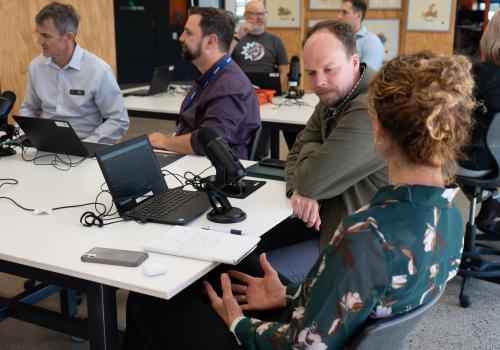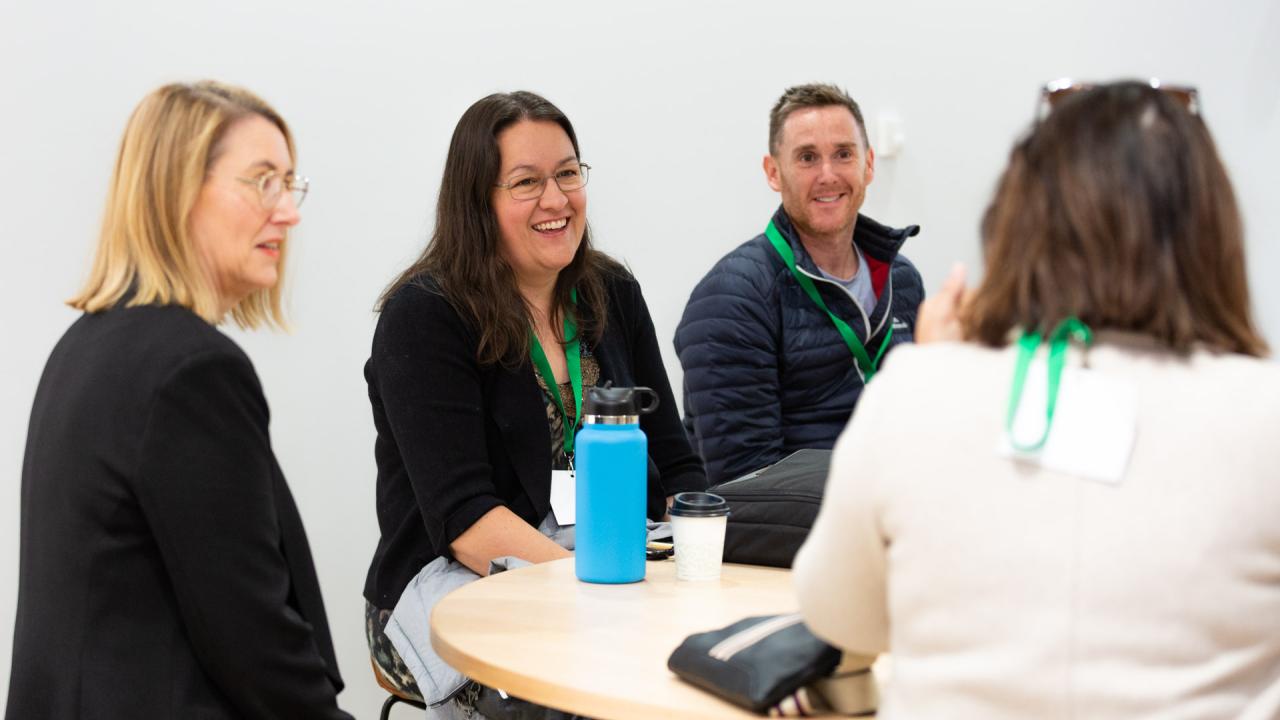13 Apr 2023
Podcasting in the primary classroom

Written by Stephanie Koble | Master Teacher (English)
Master Teachers and Principals in Residence from the Victorian Academy of Teaching and Leadership recently attended a two-day Digital Accelerator Program facilitated by Wyndham Tech School. We were fortunate to be given the time, space, and access to experiences with and conversations about technology in education, with links drawn to industry, and the implications of technology on work futures. We collaboratively diffused a bomb in virtual reality and co-created our own podcasts with microphones so precise, we didn’t even have to lean in for it to hear our conversation!

All of these resources and deep diving through conversations with colleagues (paired with my listening to Shameless Media's monthly Book Club episode) got me thinking about the implications of new digital technologies in the primary literacy classroom. Specifically, the notion of providing an authentic audience and purpose to a student-led book club through a podcast of their collaborative conversation.
To design a unit as such would require careful explicit teaching of the skills book clubbers use to share their thinking, build on and challenge each other's ideas, or deepen thinking as a group. Access to podcasting technology such as laptops, iPads, or phones, and some sort of microphone for capturing audio is also essential. Free platforms such as Bandlab (as introduced to us by Wyndham Tech School) would provide the perfect technology base for cutting and editing audio together with minimal technical skills required for immediate usage by students and teachers alike.
Not only would this media platform offer students an excellent opportunity to engage in collective discourse about shared texts, but it also has the potential to create a valuable legacy. Additionally, it presents an effective formative assessment tool for teachers to evaluate students' critical thinking skills, promote higher-level text analysis, and enhance their conversational proficiency. We could even go so far as to share these conversational pieces with parents and guardians, the local library, or other local schools – building a community of engaged readers far beyond the classroom walls.
But why stop there? We could further extrapolate this idea of podcasting to students engaging in close reading and discussion of shared texts; or we could podcast about our favourite authors and picture books in the younger years (potentially as a whole class podcast with student interviews being hosted by the teacher); we could even podcast an interview with an author, asking students to consider, analyse and query the writer’s craft.
With access to the right technology, some thoughtful backward planning, and scaffolding of student learning* we can work towards meaningful integration of technology into the primary English classroom.
*Remember, providing students with a laptop and asking them to podcast their book club ≠ high quality student learning, engagement, and quality conversation about texts!
A warm thank you to Wyndham Tech School for continuing to push the boundaries of technology and for provoking thoughtful conversations on the implications of technology in the classroom. For this Master Teacher, one such enduring notion is how podcasting could offer a truly authentic, meaningful, and engaging platform where students could share their thinking, while enhancing their literacy, language and literature competencies.





